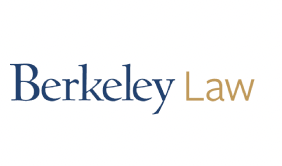Source: https://www.law.berkeley.edu/article/law-library-resources-generative-ai/
Since the ChatGPT bot debuted in November 2022, the pace of growth of and interest in generative artificial intelligence has been matched only by concerns about its impact on a wide swath of modern life, from high art to homework.
Law schools — and the law profession — are no exception. Berkeley Law issued its first policy on generative AI in April, expressly barring students from using it for exams or in composing assignments.
Kristie Chamorro, an instructional and educational technology librarian at the school’s Law Library, had already begun gathering information she thought might be helpful to faculty, students, and staff navigating this fast-moving technology. Her compilation for faculty and staff is now available on the library’s website, with regular updates to reflect the latest developments, and she’s working on an AI research guide for students.
“Generative AI is the hot topic in the national law librarian community right now,” she says. “Since the launch of ChatGPT, a wealth of resources have sprung up, including law librarian blogs, podcasts, webinars, and research guides. This quick exchange and curation of information underscores how librarians are often ahead of the curve on learning about new technologies.”
Chamorro started gathering resources just after ChatGPT was introduced using Zotero, a reference management tool, and shared it with anyone who asked about it. Over time, as a trickle of questions from faculty became a full-scale river of queries, former library director Marci Hoffman hit on the webpage idea.
Widespread interest
The simultaneous excitement and concern about how generative AI will affect legal education and practice was evident at the American Association of Law Libraries’ (AALL) annual conference in Boston in July, Chamorro says. It featured multiple sessions on how law librarians can prepare for the future of legal research and the technology’s potential impact on the profession as a whole, including significant risks of bias and misinformation.

There was also a lot of buzz, she adds, about the many new AI-powered legal research and drafting tools.
“I have definitely drawn on others’ work — law librarians are a collaborative bunch,” Chamorro says. “I am also so lucky to be working at Berkeley Law, where there are so many incredible resources, including faculty research and interest in this space.”
She has also benefited from the broader intellectual community at the school, including recent events and presentations about AI’s promise and potential pitfalls. Many were organized around the Berkeley Center for Law & Technology, the school’s hub for tech and innovation law.
Chamorro has been excited to share what she’s learned outside the school as well. Over the summer, she gave a presentation to the Northern California Association of Law Libraries and led two roundtables on generative AI and legal research at the AALL conference.
The library has received inquiries from faculty, law librarians, and students from across the country and around the world, as far away as Ukraine’s National University of Kyiv-Mohyla Academy and the University of Helsinki, Chamorro says. She’s been using a variety of research organization tools to keep up with everything, including Feedly, Evernote, and Obsidian, in addition to Zotero.
“It’s been gratifying to see the reach and impact of our efforts on this front. There is a lot to keep track of since this really is a dynamic topic that is changing by the day,” she says. “In both my current role and my past work as an attorney, exploring methods for collecting and organizing information is something I’ve always loved.
“I believe one of the many ways that the Law Library can support faculty, students and staff is to use our expertise in gathering and structuring information to enable others to stay up to date on topics like this.”
New platforms
Chamorro anticipates the list will evolve into a dynamic resource which will expand as members of the law school community inquire about specific topics or concerns. Right now, she’s getting a lot of questions from students about legal issues such as copyright infringement and possible regulation of the technology.
She’s also awaiting the imminent launch of AI-based legal research platforms from Westlaw and Lexis. Chamorro is a member of the Lexis Advisory Board and got a sneak peek at its product over the summer, so she knows the Law Library will need to get up to speed quickly once those are live to support students and faculty.
In the meantime, she continues to look for new ways to share the information she’s gathered with students, faculty, and staff. Chamorro is working with Berkeley Law’s LL.M. program to run a series of sessions for those students in the spring semester and with faculty to plan a lunch workshop for professors.
“The multifaceted nature of this project is really exciting,” she says. “I also appreciate that the school is being very intentional and mindful in its policies on academic integrity and the appropriate use of GenAI by students. At the Law Library, we are excited to provide resources to students on this front, but we want to make sure we do so in a careful and thoughtful manner.”




